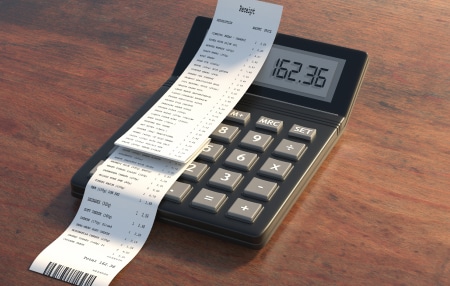
Unexpected expenses can strike at any time, disrupting your financial stability and potentially leading to debt. However, with sensible money management and professional advice and support, the prospect of juggling debt and unexpected expenses can be made a little less frightening.
In this guide, we explain what unexpected expenses can include, provide examples, and explore effective strategies for managing them. Additionally, we’ll discuss whether using a payday loan could be a wise choice when faced with unexpected costs.
What is an unexpected expense?
Put simply, an unexpected expense is a sudden cost that arises without warning, often requiring immediate attention and payment. As the name suggests, these expenses can catch anyone off guard, leading to financial stress and, if not managed properly, worsening debt. As with any financial problem, understanding the nature of unexpected expenses and how they creep up on you is the first step in preparing for them and reducing their impact.
Unexpected expenses examples
Unexpected expenses can take many forms, including:
- Dental emergencies: Sudden dental issues requiring immediate treatment, such as a root canal or tooth extraction, can be costly and unavoidable.
- Car repairs: Unforeseen vehicle breakdowns or accidents can result in expensive repair bills or the need for a replacement vehicle.
- Boiler maintenance: Unexpected boiler breakdowns needing urgent repair or replacement can leave you without heating or hot water, especially problematic in colder months.
- Vet bills: Emergency medical care for pets can be unexpectedly high, particularly if surgery or long-term treatment is required and you are not insured
- Home repairs: Sudden issues like roof leaks, plumbing problems, or electrical failures can necessitate immediate and costly repairs to maintain a safe living environment.
These examples highlight the diverse nature of unexpected expenses and underscore the importance of being prepared to handle them financially.
Dealing with unexpected expenses
Handling unexpected expenses requires a proactive approach to financial management. Below we outline some simple yet highly effective strategies to improve your financial stability and protect against unexpected expenses.
1. Build an emergency fund
Creating an emergency fund is one of the best ways to prepare for unexpected expenses. An emergency fund can act as a financial safety net, allowing you to cover sudden costs without resorting to credit or debt. Here are some steps to build an effective emergency fund:
- Set a Savings Goal: Aim to save three to six months’ worth of living expenses. This amount can provide a cushion to cover most unexpected expenses.
- Start Small: Begin by setting aside a small portion of your income each month. Even saving £10 or £20 per week can add up over time.
- Automate Savings: Set up automatic transfers to your emergency fund to ensure consistent contributions.
- Use a Separate Account: It might be worth keeping your emergency fund in a separate, easily accessible savings account to avoid the temptation of spending it on non-emergencies.
2. Improve your credit score
A good credit score can make it easier to obtain credit when needed, which can be especially helpful during financial emergencies. Improving your credit score involves several key actions:
- Pay Bills on Time: Timely payments are a significant factor in your credit score. Set up reminders or automatic payments to ensure you never miss a due date.
- Reduce Outstanding Debts: High levels of debt can negatively impact your credit score. Focus on paying down existing debts to improve your creditworthiness.
- Check Your Credit Report: Regularly review your credit report for errors or discrepancies that could harm your score. Dispute any inaccuracies promptly.
- Limit New Credit Enquiries: Too many credit enquiries in a short period can lower your score. Try to only apply for new credit when necessary.
For more information on managing debt and improving your credit, visit Types of Debt.
3. Pick up a short-term side gig
Taking on a short-term side gig can provide extra income to cover unexpected expenses. There are many opportunities available, from freelance work to part-time jobs. Side gigs can also help pay off existing debt more quickly.
Here are some benefits of picking up a side gig:
- Extra Income: Additional earnings can help you cover unexpected costs without dipping into your savings.
- Debt Reduction: Use the extra income to pay off debts faster, reducing interest payments and improving your financial stability.
- Skill Development: Side gigs can offer opportunities to learn new skills or gain experience in different fields.
- Flexibility: Many side gigs offer flexible hours, allowing you to balance them with your primary job and other commitments.
Should you use a payday loan?
Payday loans are a quick way to get cash in an emergency, but they come with high interest rates and fees and should be used cautiously. It’s not uncommon for these types of loans to have an APR (Annual Percentage Rate) of 1,500%.
Here are some points to consider before opting for a payday loan:
- High Interest Rates: Payday loans often have significantly higher interest rates compared to other forms of credit, making them expensive to repay.
- Short Repayment Terms: These loans typically require repayment within a short period, usually by your next payday. This can be challenging if you don’t have the funds available.
- Potential Debt Cycle: The high costs and short terms can lead to a cycle of debt if you are unable to repay the loan on time and need to borrow again.
Financial strategies
While payday loans can offer a quick solution, they should be used with caution due to their high costs.
If you find yourself struggling with debt due to unexpected expenses, consider exploring debt management solutions. Options like an Individual Voluntary Arrangement (IVA) or a Debt Management Plan (DMP) can provide structured ways to manage and repay your debt.
For more information on managing debt and financial advice, visit our Debt Solutions page.

To discover more about how to manage your debt and to receive free debt advice, you can visit www.moneyhelper.org.uk.

